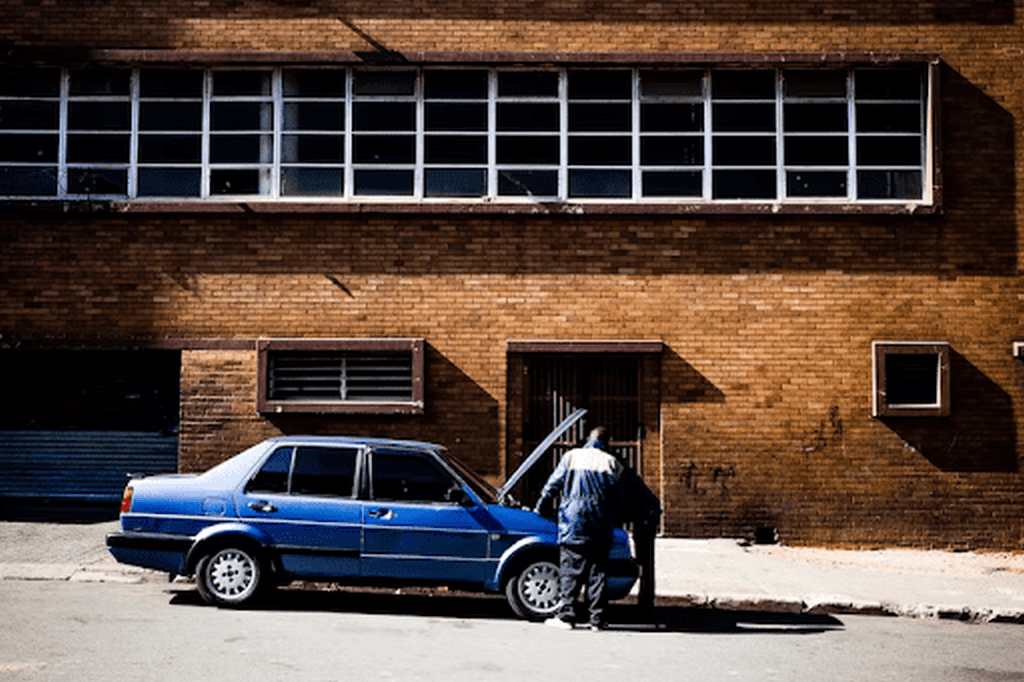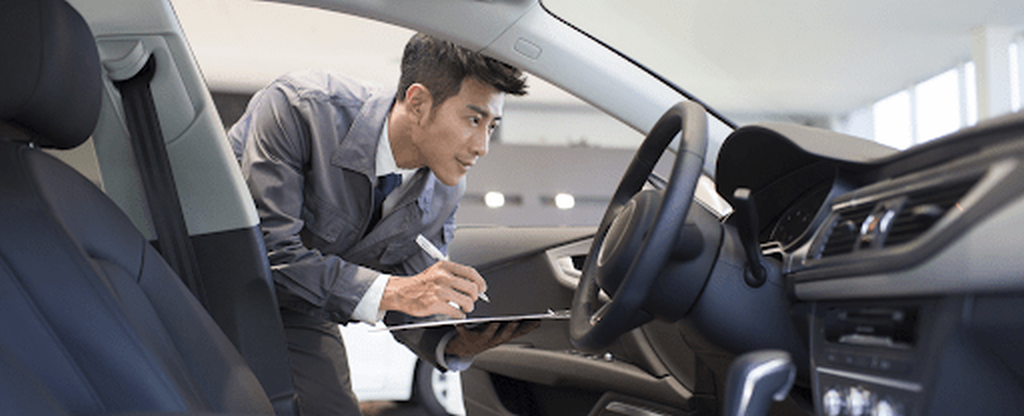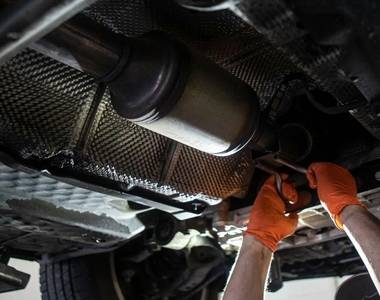If you have a car that won't run, your immediate thought is probably to scrap it. But one man's trash is another man's treasure. You've got plenty of options before you when it comes to selling a car that won't run.

Just because your car won’t run doesn’t mean you have to scrap it right away. Read this article to find out the five best ways to sell a car that won’t run.
5 Best Ways to Sell a Car That Won't Run

There has always been (and will always be) a market for second-hand cars. Millions of UK citizens drive around in pre-owned vehicles, some of which are decades old. Perhaps that's how you purchased the car you're currently driving.
But used cars are not created equal. That goes without saying.
Some have reasonable mileage and only need a few scuffs buffed out to be ready for the forecourt.
Others straight up don't run.
If your car is broken down or decades old, you probably wonder, "Who on Earth would want to buy this piece of junk?"
Well, you'd be surprised.
With a bit of patience and smart marketing, you could get a decent return for your once-beloved car.
My car isn't running. Can I still sell it?
The answer is a resounding yes. You certainly can sell your car if it isn't running.
You might not be able to sell it to a dealership (though this is possible). The pool of interested private buyers is also more limited, since most are looking for a car that runs. But you're far from out of luck.
Estimating the Value of Your Non-Running Car

Once you know you can sell your non-running car, your follow-up question should be, "How much is it worth?"
Regardless of its condition, your car's value depends on a few key factors:
- Age — Generally, newer cars sell for more, even if they aren't running.
- Make and model — High-performance cars, those with better gas mileage and luxury vehicles tend to have higher values.
- Mileage — You can fetch more for an older non-running car if it has lower mileage.
- Location — If your car is in London, you'll have a much larger pool of potential buyers than you would out in the countryside.
- Vehicle condition — What exactly about your car isn't running? If the engine is completely shot, you'll have a much harder time selling it than if it just needs a new battery.
To get a roundabout idea of what your car is worth, we recommend using our car valuation calculator first. Then, take it to a dealer or online buyer to understand its true value based on its condition and current market dynamics.
Exploring Selling Options for a Car That Won't Run
We briefly touched on the different ways you can sell a car that doesn't run. Let's take an in-depth look at each of these options.
First, consult mechanics and repair shops

Whether you're selling a van, car, truck or motorbike, your first step should be to consult a mechanic. They will be able to quote you for any repair work that needs to be done and tell you a rough estimate of your non-running car's worth.
You may find it only requires a tuning, battery replacement or minor repair to get it running again. Or you may discover the time and expense involved in repair won't net you much (if any) profit or trade-in value.
If all you need to change out is a few essential parts, it's probably worth boosting your car's market value and selling it as fully functional. If the repairs will run you thousands of pounds, perhaps you should sell your damaged car as-is.
Compare the numbers on parts/repair estimates against your car's previously estimated value. Even if the potentially higher selling price isn't worth the effort, you have plenty of options.
Sell to a dealership
For starters, it can't hurt to try selling to an authorised dealership. If your car isn't running but is easily fixable, they may see it as a good investment opportunity. Dealerships almost always have mechanics on staff who will be able to examine the car and judge its worth in its current state.
Keep in mind you will probably have to check with multiple dealers before you get a competitive offer (or any offer, for that matter). It helps to try both used car dealers and official brand dealers. The former may have a special process for non-running cars and the latter might have the parts on hand to fix and resell it on the spot.
Sell it independently
If you want to sell your car privately, you have multiple options for connecting with buyers.
The first one is to try an online auction site or classifieds portal — eBay, Craigslist, AutoTrader and Gumtree are all popular options. You'll be able to list your car in detail and let potential buyers know precisely what they're getting. Best of all, it's cheap (or free) — you can list a car on AutoTrader, for example, for as low as £37 for an entire week.
If you're selling your car online, it could also benefit you to join private Facebook groups and car forums. Auto traders, mechanics and car hobbyists hang out on these platforms. You might be able to find a reputable private buyer that way.
For those selling a unique model (such as a classic car or a rare vintage), you could also try selling it on specialist car sites. Specialised buyers are usually willing to make solid offers for the vehicles they really want. You may have to wait longer for such an offer, but if it does come through it'll be worth more than the amount you would've got from scrapping.
Part out your car

If you're listing your car online and can't get anyone to bite, you could try selling it for parts.
Depending on its make/model and its components' condition, you can almost always make some cash off its parts alone (even if some of the parts aren't working properly or you're selling a salvage car).
Briefly, the most valuable parts of your vehicle are:
- Engine — The engine is the most valuable component. Sell it if it's in good condition and still works (you may receive over £500 for it). Scrap it if it's completely dead
- Body parts — If your car is damaged, dent-free body parts could fetch you a nice return.
- Catalytic converter — Your catalytic converter contains precious metals, including rhodium, palladium and platinum. You can usually get £100+ for it.
- Exhaust system — Especially if you sell it with your catalytic converter, your exhaust system could bring you hundreds of pounds.
- Wheels — Alloy wheels tend to be the most sought-after (and expensive).
- Interior parts — Depending on its condition, you may be able to make a tidy sum from interior components like airbags, seats, window switches and other electronics. Airbags, for example, sometimes go for £200 each.
- GPS system — Selling your car's GPS system to an electronics shop, manufacturer or parts dealer will net you a few hundred pounds at least.
- Stereo — Car stereos break, get blown out and go out of style often. If you're selling a car with a functional stereo, someone will certainly want to buy it.
Once you know the value and condition of each part, you can begin listing them on online marketplaces like eBay or Gumtree. You can also take them to local parts traders, collectors and mechanics.
Sell to a junkyard

Selling your car for scrap, ideally, is the last resort option. You'll get the least value for your car compared to the other alternatives (the current average payout is £340). The good news is most junk yards will collect cars for free inside the UK — unless you live in a remote location.
Donate your car to charity
If money isn't a motivator for selling your car, why not donate it to a good cause instead of outright scrapping it?
An online service like Giveacar could take your non-running car off your hands.
- They pick up your car free of charge.
- They list it, auction it off or scrap it.
- You indicate the organisation you want the proceeds to go toward.
- They take care of the donation on your behalf.
It's that easy. And you might qualify for a tax deduction if you take this route.
Plus, you won't have to worry about spending money on repairs or marketing your car. Who knows — your donation might end up helping someone in need and making the world a better place!
How to Prepare Your Non-Runner Car for Sale
Preparing your car for sale is one of the most important steps no matter what condition it's in. If it doesn't look its best, nobody will pay you the best price for it.
Collect and organize relevant documents
First things first, you want to make sure all the documents needed for selling your car are in order.
If you don't have the following, the selling process will be a lot more complicated:
- V5C logbook — You can sell a car without a V5C, but we advise against it. Dealerships and online car buyers won't accept a car without it. Getting a new one is easy, and you'll need to have it to notify the DVLA when you sell your car.
- MOT certificate — If your car hasn't been running for a while, you aren't expected to have a valid MOT certificate (see how to sell a car without an MOT). But if you do, having it up-to-date will help increase your car's value.
- Service history — This is especially important for non-runners. It can make the difference between someone buying or passing on it because they need assurance of its condition.
- Parts receipts — If you're selling your car for parts, you need to have receipts to prove the parts are genuine. This will save you tons of back-and-forth with buyers and significantly increase your car's value.
Clean and detail your car

After your documents are in order, have your car cleaned and detailed. No matter its condition, boosting its curb appeal will certainly increase your chances of getting a good offer.
- Wash it from top to bottom. Use car shampoo, wash mitts and sponges to get rid of dirt and grime on both the inside and outside of your car.
- Vacuum the interior. Vacuum the seats, carpets, floor mats and any other area that has accumulated dust.
- Wipe down the dashboard and other surfaces with a damp cloth. This clears out any additional dust and debris.
- Polish the exterior of your car. Apply a coat of wax (this will make it look much better). And don't forget to clean the tires, rims and windows too!
We recommend taking it for a professional detailing if you plan to fix your car and sell it for more. It will probably be the best £100 to £200 you've ever spent.
Take high-quality photos showcasing its features
These days, taking a great photo of your car is easier than ever. Today's smartphones have better cameras than the ones professional photographers used a few years ago.
Use this to your advantage and take some amazing photos of your car.
Take a few angled shots from different perspectives — front, back, sides, trunk, hood and interior. Capture all of its features and make sure to highlight why your car doesn't run and what parts still work perfectly.
Decide on a fair asking price
Your vehicle's asking price should be fair for both you and the buyer. Pricing your car for sale shouldn't be too difficult if you've already consulted a trusted mechanic and researched its market value.
If you're still unsure, you can always compare it to similar models on classified sites.
Wrapping Up
Selling a car that won't run leaves you with more options than you think. For newer cars in decent condition, you might be able to sell to a dealership. If it's completely dead but still an in-demand model, you can sell the parts that work.
The most important thing to remember when selling a non-running car is to do your research, be honest about its condition and have all the paperwork ready. With a bit of prep work, you can get a fair price for your car — even if it won't run!
Want to learn more? These are the questions our sellers ask us the most.
Where is the best place to sell my non-runner car?
Depending on your car's condition, you could sell a non-running car to a dealership, an online car buyer, or a scrap yard. Newer cars that don't run can also be sold for parts on online platforms or to local mechanics, collectors and parts traders.
What does a 'non-runner' car mean?
A non-runner is a car that won't start and cannot drive. Non-runner cars can come in a variety of conditions, from minor mechanical problems that need to be fixed (e.g., a dead battery), to more serious issues like blown engines or seized brakes.
How do you get rid of a non-running car?
If your main goal is to get rid of your car (i.e., you aren't concerned with making money from it), a local scrap yard will be able to take it off your hands. You could also opt to donate it, which would put the proceeds of your scrapped car toward a charitable organisation of your choosing.
How much can I expect to get for a non-running car?
When selling a car that doesn't run, you will have to accept less than the market value. Factors like its condition, make and model will affect how much you can get for it. If you're willing to put in the effort to fix any problems it has, you will be able to fetch a higher price.
Should I try to fix my non-running car before selling it?
If getting your car up and running again will only cost a few hundred pounds, it's usually a better idea to fix it. If all you need to do is replace the battery, fix a few scuffs or clean it up, you could be on for a nice profit. It all depends on the condition of your car and whether it's worth putting in the effort.
How can I sell a non-running car for parts?
You can sell a non-running car for parts by reaching out to local mechanics, collectors or parts traders. You can also use eBay or other online platforms to put the car up for sale. Make sure you specify the condition of each part and include high-quality photos in your listing for maximum visibility.
What are the advantages of selling a non-running car to a junk yard or scrap yard?
Although you won't get much money this way, the main advantage to selling to a junkyard or scrap yard is its convenience. No need to mess around with paperwork, advertising or buyers. All you have to do is arrange a pickup and you're good to go!
What should I do with a non-running car that is not worth selling?
If your non-running car is not worth selling, we suggest evaluating the value of its individual parts before scrapping it. You'd be surprised how much some of them are worth, and it could be a great way to recoup some of your losses.
Is it possible to trade in a non-running car at a dealership?
It is possible to trade in a non-running car for a dealership. Your chances are higher if it is a newer model, the dealership deals specifically with your car's brand or the fixes are quick and easy to make. If any of the car's key components don't work properly, you'll have a harder time selling it.










